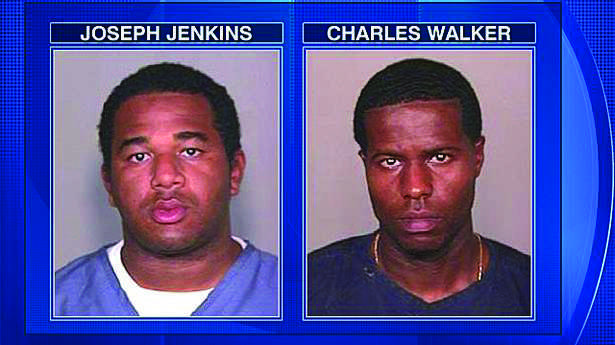Two murderers escaped Florida prison
What looked to be a legitimate court release document turned out to be a fraud; releasing two convicted murderers from the Orange County Court House in Orlando, Fla. Authorities now are on the hunt for these two men, Joseph Jenkins, who were released on Sept. 27, and Charles B. Walker, who was released Oct. 8.
Hundreds of prison official across Florida hurried to make sure that no other inmates have been released early due to forged documents.
Jenkins, 34, was found guilty of first-degree murder in the 1998 killing and mishandled robbery of Orlando man, Roscoe Pugh. Walker, on the other hand, was convicted for the second-degree murder of Cedric Slater, 23, in a 1999 murder in Orange County in which he told police investigators that Slater was bullying him and he fired three shots intending to scare him away.
According to Mike Schneider and Brendan Farrington, reporters from KHQ, Chief Circuit Judge Belvin Perry, who served as the judge on Casey Anthony’s trial, said that there were many red lights that should have caught the attention of the Corrections Department. He mentioned that it is rare for a judge to order a sentencing reduction and when it is a request from the prosecutors, it becomes even more uncommon. Perry is also the signature forged on the phony documents.
On an NBC news video posted on their website, Judge Perry commented that currently it is easier to forge any type of document.
“Convicts had to have help from outside. Anyone with any computer skills can look at a document and take that document off the Internet and lift the signature and paste it somewhere else,” Perry mentioned.
Perry also stated, “One of the things we have never taken a close look at is the verification of a particular document to make sure it’s the real.”
CNN Miami correspondent John Zarrella mentions that authorities found out that this was happening when the family of one of the victims called the state attorney’s office to find out why they had been released. After hearing this, the state attorney’s office took action and contacted the department of corrections and the Florida Department of Law Enforcement to inform them.
According to police reports, this has not been the first time where court houses receive forged documents to release inmates. In 2010, a killer in Wisconsin forged documents that dramatically shortened his sentence. He
walked free for a week until he was captured. Another forged document was discovered two years later in Pa. where a prisoner was let out and was captured three months after being freed.
Authorities are doing all they can in their power to search for these two convicted criminals. Orange County Clerk of Courts spokeswoman, Leesa Bainbridge, mentioned that the courthouse goes through thousands of court documents each day and “they have no way of authenticating those that pass to other agencies.”
Perry added that maybe requiring a phone call to the judge’s office or changing the type of paper orders are printed on might help this problem and prevent future escapes.

